"While dictators rage and statesmen talk, all Europe dances — to The Lambeth Walk."
Thursday, 21 May 2009
The Joys of Diversity & Cultural Enrichment (XI)
Which Western country is getting the most out of its immigration policy? Today's contenders are Denmark, Spain and France.
1) France
A young mother was returning from a bakery in Calais when an Afghan male, one of a large number of U.K.-bound asylum seekers in the area, jumped on her and subjected her to a sexual assault.
Police rounded up dozens of migrants, and the victim managed to pick her attacker out at an identity parade.
A police spokesman said:
'We constantly advise women not to walk around alone near the industrial area, near the ferry port and woodland camp.'
Last summer a Pakistani illegal immigrant raped a Canadian journalist who was charting conditions in the notorious 'Jungle' camp in the woods around Calais.
2) Spain
Police yesterday arrested a number of Algerians and an Iraqi in the Basque city of Bilbao.
Around thirteen men were detained for offences relating to drug trafficking, credit card cloning and fraud, and theft. Jewellery, thousands of Euros in cash and stolen passports were seized by police.
It is believed that profits from crimes committed by the gang were being used to finance al-Qaeda operations in North Africa:
Spain's Interior Minister Alfredo Perez Rubalcaba said: "The arrests have come about due to common crime and an investigation is under way into whether some of the proceeds were channelled into financing international terrorism,"
3) Denmark
A group of Iraqi asylum seekers have sought refuge in a Danish church to avoid being deported. On Sunday there were a group of around ten asylum seekers in the National Cathedral of Denmark, the Church of Our Lady in Copenhagen.
However as the group grew they moved to Brorsons Kirke in the Nørrebro district of Copenhagen, as they invited friends and family and could not be accommodated in the original choice. They now number around sixty individuals.
A 'group of youths' who support the migrants brought them a fridge packed with food, and concerned Danes have brought them blankets, clothes and food.
Ole Ehlers, the head of the Church Council, said the refugees are unwanted in the church, and he is annoyed that it is being used in such a blatantly political fashion. However, he does not condone the use of force to remove them.
Here is an extract from the story at DR, translated by Esther from Islam in Europe:
According to Taleb Ansari, the group's spokesperson, they can manage and the mood is OK. They feel secure in the church and that is most important, but there are also many who are nervous.
The Iraqis want to get work permits and stay in Denmark. The protest is organized by a group named Kirkeasyl (church asylum).
Ansari says that if he can't live here, he's ready to die here.
The Iraqis are hoping to follow the example of 70 Lebanese-Palestinians who in 1992 sought asylum in Blågårds Kirke. They were finally granted asylum, after special legislation was passed (The Palestinians Law).
The men in the Church of Our Lady come from the Sandholm and Avnstrup asylum centers, and belong to a group of 283 Iraqis who will be deported over the upcoming months, as part of an agreement between Denmark and Iraq.
Ramzy Tajran says that the police took his work permit, and he's been living for ten years in Sandholm. "What will I do in Iraq? I was born in 1969 and in 1981 my family fled to Iran, and in 1992 we came to Denmark. My only remaining family member in Iraq - my older brother - was taken hostage and killed," he says.
Ali Rasool (32) says he has no family in Iraq and his son is in Denmark. He's being forced to leave the country and his son (4), which he's had with his Icelandic ex-girlfriend. His friend Taleb (48) says that they've been sold by Denmark to Iraq for 50 million Kroner. "Here in the church we're safe. Here the police won't come and send us out to the airport."
Both men are afraid of what's waiting for them in Iraq. Ali Rasool is suffering from a kidney disease and his afraid he won't get the right treatment in Iraq.
"We've been persecuted in Iraq and now we're also persecuted in Denmark. this is our last opportunity for protection," says spokesperson Anne.
No mention of why they did not find a mosque to seek refuge in, or why any of the above sob stories are the problem of the Danish taxpayer. It is good to see a European country enforcing its borders and its laws, and I hope the Danish resolve stands firm.
1) France
A young mother was returning from a bakery in Calais when an Afghan male, one of a large number of U.K.-bound asylum seekers in the area, jumped on her and subjected her to a sexual assault.
Police rounded up dozens of migrants, and the victim managed to pick her attacker out at an identity parade.
A police spokesman said:
'We constantly advise women not to walk around alone near the industrial area, near the ferry port and woodland camp.'
Last summer a Pakistani illegal immigrant raped a Canadian journalist who was charting conditions in the notorious 'Jungle' camp in the woods around Calais.
2) Spain
Police yesterday arrested a number of Algerians and an Iraqi in the Basque city of Bilbao.
Around thirteen men were detained for offences relating to drug trafficking, credit card cloning and fraud, and theft. Jewellery, thousands of Euros in cash and stolen passports were seized by police.
It is believed that profits from crimes committed by the gang were being used to finance al-Qaeda operations in North Africa:
Spain's Interior Minister Alfredo Perez Rubalcaba said: "The arrests have come about due to common crime and an investigation is under way into whether some of the proceeds were channelled into financing international terrorism,"
3) Denmark
A group of Iraqi asylum seekers have sought refuge in a Danish church to avoid being deported. On Sunday there were a group of around ten asylum seekers in the National Cathedral of Denmark, the Church of Our Lady in Copenhagen.
However as the group grew they moved to Brorsons Kirke in the Nørrebro district of Copenhagen, as they invited friends and family and could not be accommodated in the original choice. They now number around sixty individuals.
A 'group of youths' who support the migrants brought them a fridge packed with food, and concerned Danes have brought them blankets, clothes and food.
Ole Ehlers, the head of the Church Council, said the refugees are unwanted in the church, and he is annoyed that it is being used in such a blatantly political fashion. However, he does not condone the use of force to remove them.
Here is an extract from the story at DR, translated by Esther from Islam in Europe:
According to Taleb Ansari, the group's spokesperson, they can manage and the mood is OK. They feel secure in the church and that is most important, but there are also many who are nervous.
The Iraqis want to get work permits and stay in Denmark. The protest is organized by a group named Kirkeasyl (church asylum).
Ansari says that if he can't live here, he's ready to die here.
The Iraqis are hoping to follow the example of 70 Lebanese-Palestinians who in 1992 sought asylum in Blågårds Kirke. They were finally granted asylum, after special legislation was passed (The Palestinians Law).
The men in the Church of Our Lady come from the Sandholm and Avnstrup asylum centers, and belong to a group of 283 Iraqis who will be deported over the upcoming months, as part of an agreement between Denmark and Iraq.
Ramzy Tajran says that the police took his work permit, and he's been living for ten years in Sandholm. "What will I do in Iraq? I was born in 1969 and in 1981 my family fled to Iran, and in 1992 we came to Denmark. My only remaining family member in Iraq - my older brother - was taken hostage and killed," he says.
Ali Rasool (32) says he has no family in Iraq and his son is in Denmark. He's being forced to leave the country and his son (4), which he's had with his Icelandic ex-girlfriend. His friend Taleb (48) says that they've been sold by Denmark to Iraq for 50 million Kroner. "Here in the church we're safe. Here the police won't come and send us out to the airport."
Both men are afraid of what's waiting for them in Iraq. Ali Rasool is suffering from a kidney disease and his afraid he won't get the right treatment in Iraq.
"We've been persecuted in Iraq and now we're also persecuted in Denmark. this is our last opportunity for protection," says spokesperson Anne.
No mention of why they did not find a mosque to seek refuge in, or why any of the above sob stories are the problem of the Danish taxpayer. It is good to see a European country enforcing its borders and its laws, and I hope the Danish resolve stands firm.
Subscribe to:
Post Comments (Atom)
.jpg)





















































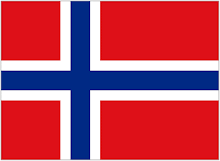
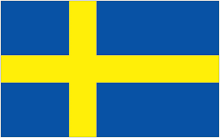






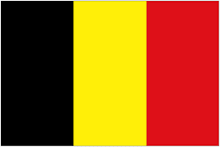

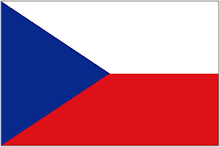











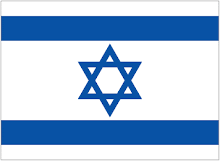




No comments:
Post a Comment